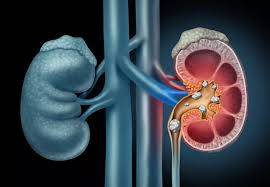8 Early Signs of Kidney Damage You Should Not Ignore
Kidney damage often develops gradually, and in its early stages, you may not notice any obvious symptoms. However, as the kidneys are essential for filtering waste and excess fluid from the body, it's crucial to recognize early signs of kidney damage before it progresses to more serious conditions like kidney failure. By understanding these early indicators, individuals can seek medical attention in time to prevent further complications. Here are eight early signs of kidney damage that should not be ignored.
One of the first signs of kidney damage is changes in urination patterns. This can include urinating more frequently, especially at night, or noticing a decrease in the volume of urine. The urine may appear darker or more foamy than usual, indicating the presence of excess protein. Blood in the urine, whether visible to the naked eye or detected through a urine test, can also be a red flag for kidney problems. If you notice any of these changes, it is important to consult a healthcare provider as they may indicate impaired kidney function.
Fatigue and weakness are also common symptoms of kidney damage. The kidneys play a critical role in maintaining healthy red blood cell production through the secretion of erythropoietin, a hormone that stimulates the bone marrow to produce red blood cells. When kidney function declines, erythropoietin production can be reduced, leading to anemia, which causes fatigue and overall weakness. If you feel unusually tired despite adequate rest, it could be a sign that your kidneys are not functioning properly.
Swelling in the body is another key symptom of kidney damage. When the kidneys are unable to filter waste and excess fluids, fluid builds up in the body, causing swelling in the legs, ankles, feet, and sometimes the face or hands. This condition, known as edema, can be accompanied by tight or swollen skin. If you experience unexplained swelling that does not subside with elevation or rest, it could be a sign that your kidneys are struggling to maintain fluid balance.
Additional signs that may indicate kidney damage include shortness of breath, persistent high blood pressure, and unexplained back or flank pain. As kidney function declines, waste products can accumulate in the bloodstream, leading to difficulty breathing or feeling winded even with minimal physical activity. High blood pressure, or hypertension, is both a cause and a consequence of kidney disease, as the kidneys help regulate blood pressure. Lastly, pain or tenderness in the lower back or side, often described as sharp or aching, can suggest problems with the kidneys, such as infection or stones.
If you experience any combination of these symptoms, it's vital to seek medical advice promptly. Early detection and treatment can slow or even reverse the progression of kidney damage, preventing more severe health issues like kidney failure. By staying aware of these early warning signs and getting regular checkups, you can protect your kidney health and ensure timely intervention when necessary.


